Abstract
The main objective of this study was to evaluate whether daily consumption of caffeine-containing beverages is related to the prevalence and severity of premenstrual syndrome apart from any effects of daily total fluid consumption. A secondary objective was to determine whether daily total fluid consumption itself is related to premenstrual syndrome. The study is based on 841 responses to a questionnaire probing menstrual and premenstrual health, and daily fluid consumption, which was mailed to female university students in Oregon. Analysis of the data revealed that consumption of caffeine-containing beverages was strongly related to the prevalence of premenstrual syndrome. Among women with more severe symptoms, the relation between consumption of caffeine-containing beverages and premenstrual syndrome was dose-dependent, with prevalence odds ratios equal to 1.3 for consumers of one cup of a caffeine-containing beverage per day and increasing steadily to 7.0 for consumers of eight to 10 cups per day. The effects were apparent among both caffeine-containing tea/coffee consumers and caffeine-containing soda consumers. The observed effects were only slightly reduced when daily total fluid consumption was controlled. Daily total fluid consumption also was related to the prevalence of premenstrual symptoms although the effects were large only for consumers of 13-19 cups of fluid per day (the largest amount studied).
Full text
PDF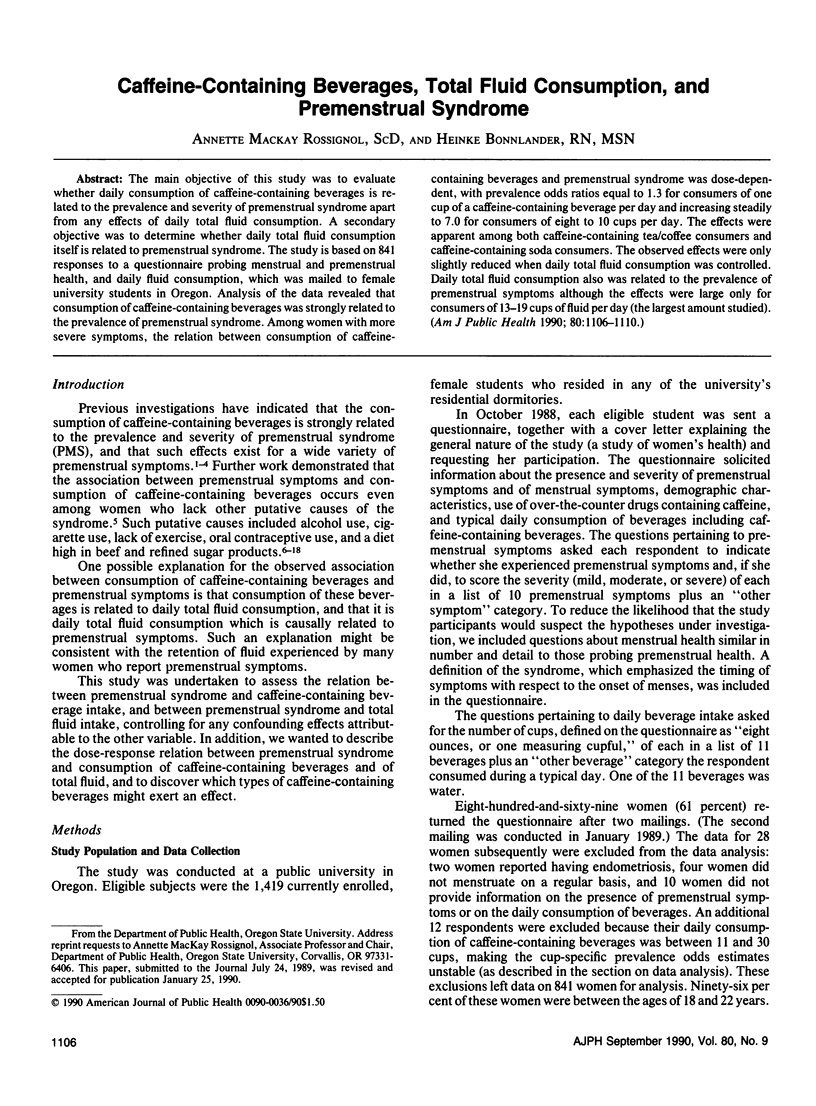
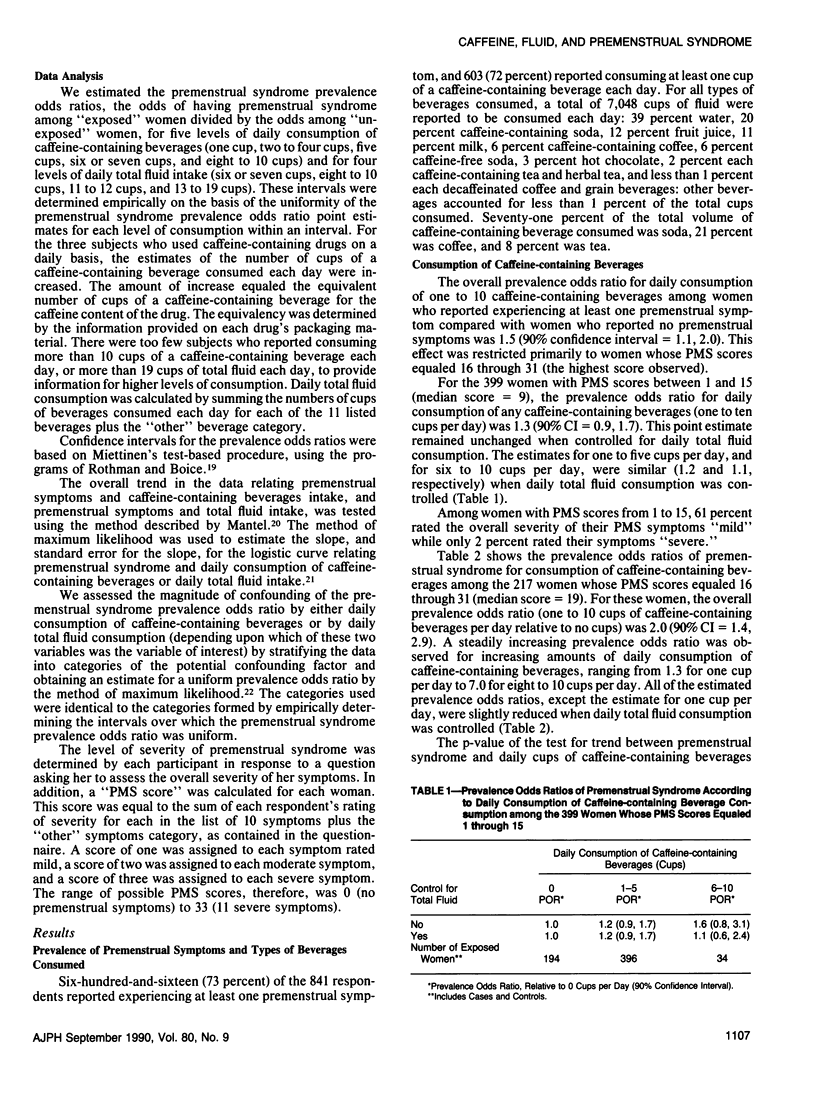
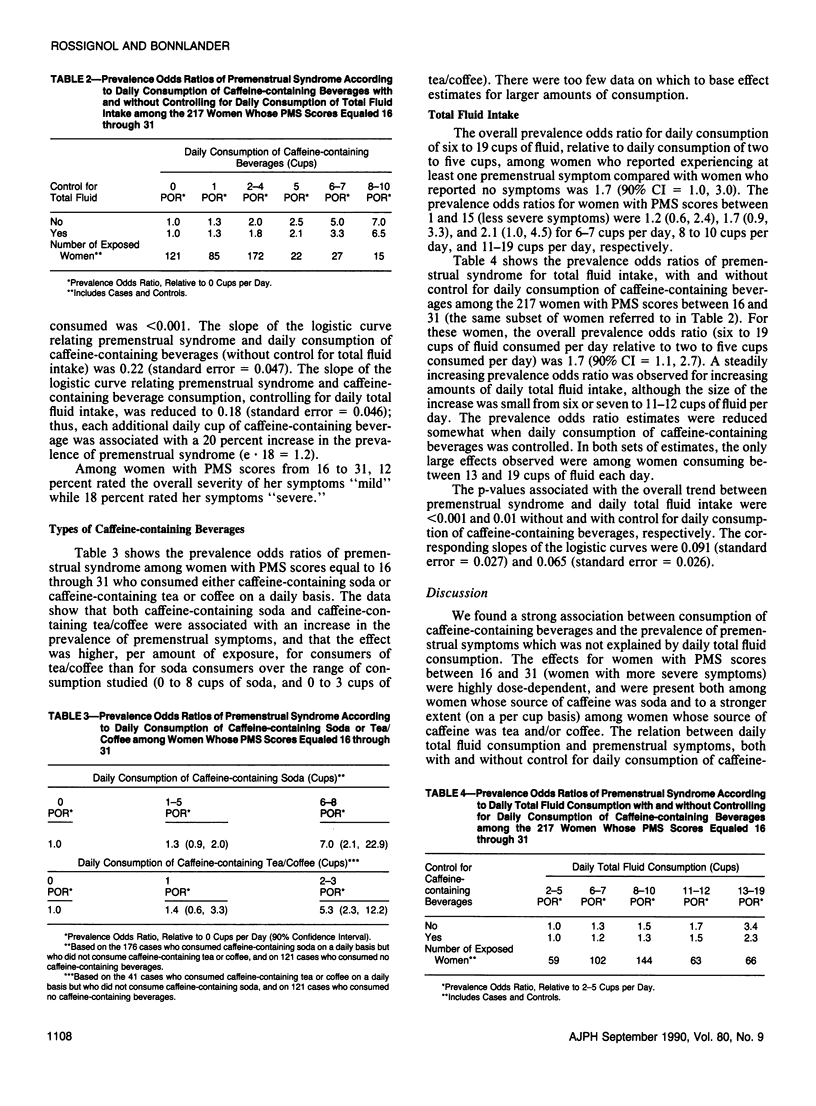
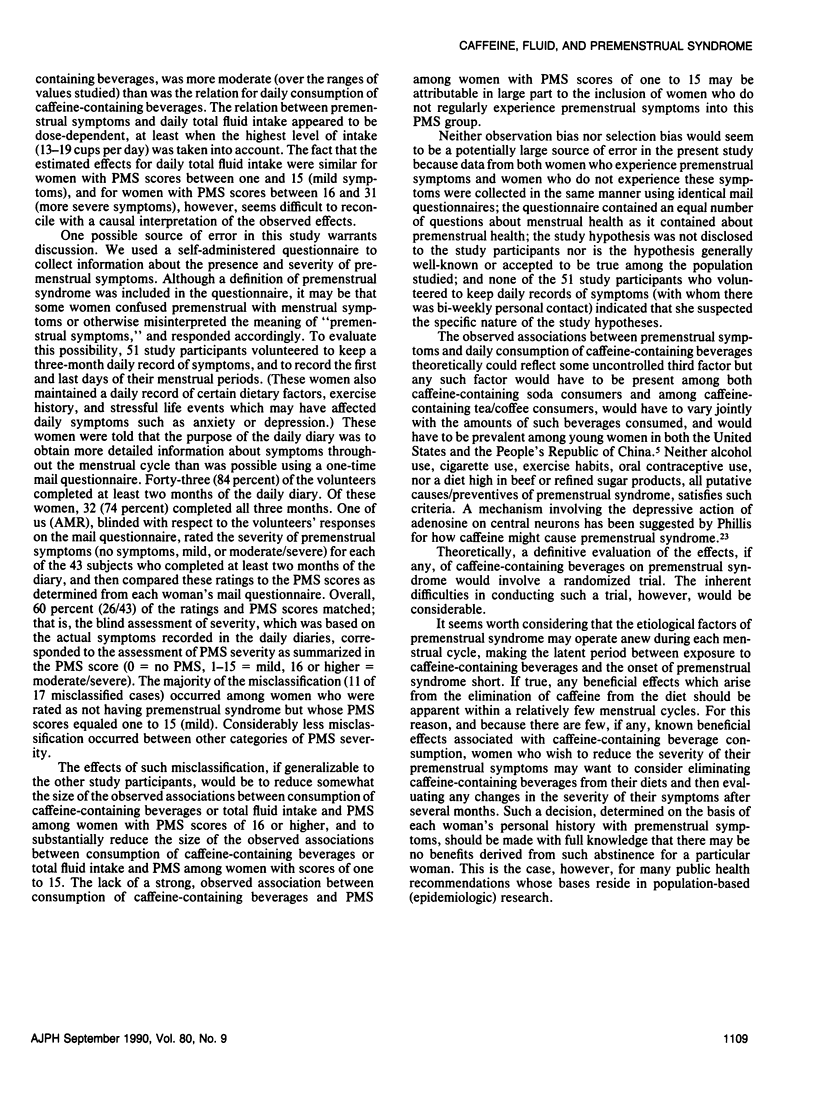
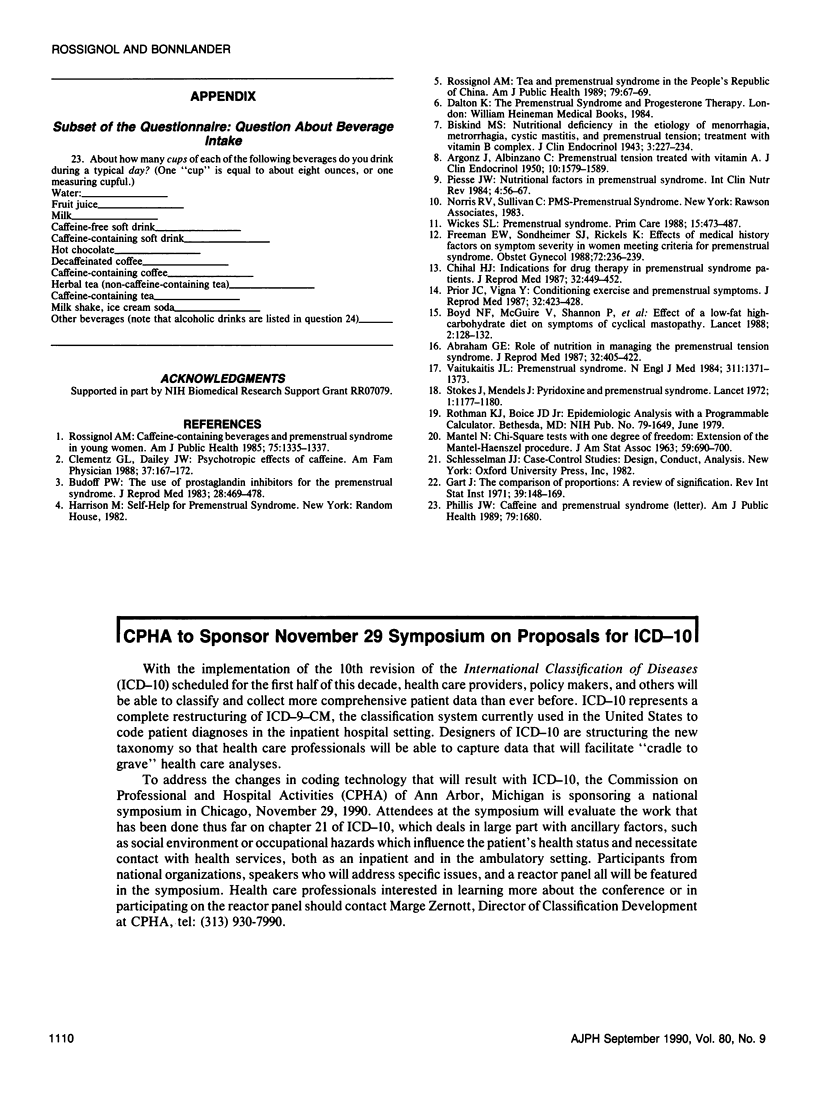
Selected References
These references are in PubMed. This may not be the complete list of references from this article.
- ARGONZ J., ABINZANO C. Premenstrual tension treated with vitamin A. J Clin Endocrinol Metab. 1950 Dec;10(12):1579–1590. doi: 10.1210/jcem-10-12-1579. [DOI] [PubMed] [Google Scholar]
- Abraham G. E., Rumley R. E. Role of nutrition in managing the premenstrual tension syndromes. J Reprod Med. 1987 Jun;32(6):405–422. [PubMed] [Google Scholar]
- Boyd N. F., McGuire V., Shannon P., Cousins M., Kriukov V., Mahoney L., Fish E., Lickley L., Lockwood G., Tritchler D. Effect of a low-fat high-carbohydrate diet on symptoms of cyclical mastopathy. Lancet. 1988 Jul 16;2(8603):128–132. doi: 10.1016/s0140-6736(88)90684-8. [DOI] [PubMed] [Google Scholar]
- Budoff P. W. The use of prostaglandin inhibitors for the premenstrual syndrome. J Reprod Med. 1983 Jul;28(7):469–478. [PubMed] [Google Scholar]
- Chihal H. J. Indications for drug therapy in premenstrual syndrome patients. J Reprod Med. 1987 Jun;32(6):449–452. [PubMed] [Google Scholar]
- Clementz G. L., Dailey J. W. Psychotropic effects of caffeine. Am Fam Physician. 1988 May;37(5):167–172. [PubMed] [Google Scholar]
- Freeman E. W., Sondheimer S. J., Rickels K. Effects of medical history factors on symptom severity in women meeting criteria for premenstrual syndrome. Obstet Gynecol. 1988 Aug;72(2):236–239. [PubMed] [Google Scholar]
- Phillis J. W. Caffeine and premenstrual syndrome. Am J Public Health. 1989 Dec;79(12):1680–1680. doi: 10.2105/ajph.79.12.1680. [DOI] [PMC free article] [PubMed] [Google Scholar]
- Prior J. C., Vigna Y. Conditioning exercise and premenstrual symptoms. J Reprod Med. 1987 Jun;32(6):423–428. [PubMed] [Google Scholar]
- Rossignol A. M. Caffeine-containing beverages and premenstrual syndrome in young women. Am J Public Health. 1985 Nov;75(11):1335–1337. doi: 10.2105/ajph.75.11.1335. [DOI] [PMC free article] [PubMed] [Google Scholar]
- Rossignol A. M., Zhang J. Y., Chen Y. Z., Xiang Z. Tea and premenstrual syndrome in the People's Republic of China. Am J Public Health. 1989 Jan;79(1):67–69. doi: 10.2105/ajph.79.1.67. [DOI] [PMC free article] [PubMed] [Google Scholar]
- Stokes J., Mendels J. Pyridoxine and premenstrual tension. Lancet. 1972 May 27;1(7761):1177–1178. doi: 10.1016/s0140-6736(72)91399-2. [DOI] [PubMed] [Google Scholar]
- Vaitukaitis J. L. Premenstrual syndrome. N Engl J Med. 1984 Nov 22;311(21):1371–1373. doi: 10.1056/NEJM198411223112109. [DOI] [PubMed] [Google Scholar]
- Wickes S. L. Premenstrual syndrome. Prim Care. 1988 Sep;15(3):473–487. [PubMed] [Google Scholar]



